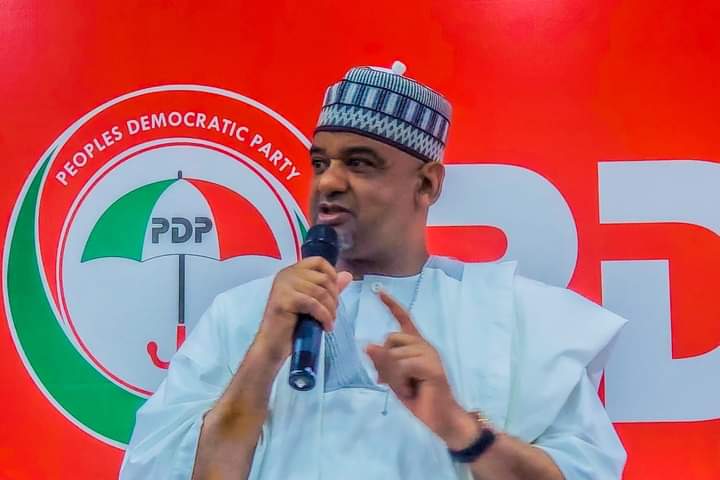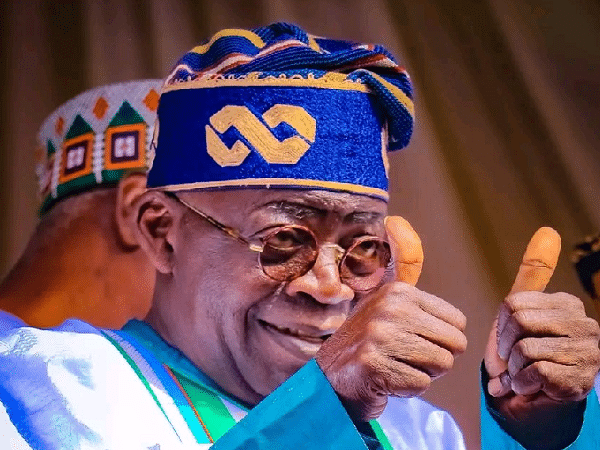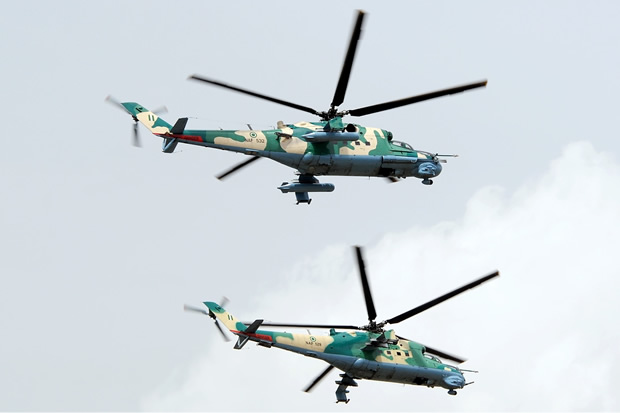By Bayo Onanuga
The national council of state, a diverse body comprising former presidents, heads of government, chief justices of the federation, state governors, the secretary of the federal government, the attorney-general of the federation and the minister of the Federal Capital Territory, held its first meeting under President Bola Ahmed Tinubu on Tuesday, August 13. This diverse composition underscores the council’s advisory role in shaping the nation’s policies and decisions, ensuring a broad spectrum of perspectives are considered.
At its last meeting 18 months ago, the council was briefed by the INEC chairman and the inspector-general of police on the preparations for the general election, which took place two weeks later. Godwin Emefiele, then the Central Bank governor, also informed the council on implementing the currency redesign policy, which created a severe economic crisis.
This time, six ministers and the national security adviser, Mallam Nuhu Ribadu, briefed the council. President Bola Tinubu reported on the appointments made to the National Population Commission and the Independent National Electoral Commission. Both INEC and NPC are federal executive bodies contained in the constitution. In his briefing, the president told the council that he fully complied with the Federal Character principle and subjected the appointments to the approval of the Nigerian senate.
It was fitting that Ribadu, the NSA, briefed the council first, the meeting coming just a few days after the end of peaceful and violent national protests in which some Nigerians called for regime change. In some cities in Northern Nigeria, protesters even displayed the Russian flag and caused some destruction of public and private properties. The NSA profiled some of the protesters as ideologues, anarchists, unemployed youths, and members of socialist movements and non-governmental organizations (NGOs). The protesters used internet radio and social media platforms, such as TikTok, Twitter Spaces, and fake news to mobilise people on the streets. He mentioned the involvement of an Islamic Group and some Nigerians in the diaspora. Nigeriens also took part in the protest, and the participation of a foreign agent provocateur, a European, was also found during the protest. His local collaborators have been arrested. The protest was well funded, with N4 billion contributed by political actors and $ 50 million traced to crypto wallets. Four wallets containing $38 million were blocked. The funding sources are all under investigation.
The protest recorded casualties. Eight people died from a variety of causes: bombing in Borno, vigilante shooting in Kebbi, and reckless driving also in Borno.
The briefing, laced with infographics, was comprehensive. Council members praised the paper. The council suggested the country step up efforts to secure the borders and stabilise the exchange rate. President Tinubu promised to work on the suggestions.
Economic Updates
Next was the Minister of Agriculture and Food Security, Senator Abubakar Kyari. He reported on the gains of dry-season farming: 118,657 hectares cultivated, 474,628 metric tonnes of grains harvested, valued at N309 billion. He spoke on the food palliatives: 43,000 metric tonnes released from the reserve, 20 trucks of rice sent to the states from March/April, and the decision to allow tariff-free import of food for six months, all designed to crash the cost of food.
Finally, he spoke of importing thousands of tractors and other mechanisation equipment from the United States, Brazil, and Belarus and establishing mechanisation hubs in the six geopolitical zones with a $945 million loan.
Olawale Edun, the coordinating minister of the economy, briefed the council on the gains recorded in the last 14 months. Among these are exchange rate stability, a positive trade balance, and an increase in foreign direct investment and Portfolio Investment. According to recent figures from the National Bureau of Statistics, he said inflation has been slowing down. Oil production has increased, and revenues collected hit N9 trillion at the end of June, the year’s first half. He said the outlook for the year’s second half will also be better.
Infrastructure Development
Works Minister Dave Umahi reported on the inherited road contracts estimated at N14 Trillion and a funding gap of N13 trillion. Because of current market realities, the funding gap will further increase. He said this has necessitated a comprehensive review of all the critical roads by the Tinubu Administration. According to him, many roads will impact the transportation and marketing of agricultural produce.
Using tables, maps and photos, Umahi said N300 billion was provided in the supplementary budget 2023 to fix some roads and bridges. About 90 per cent of the roads have been completed, with all the regions benefitting. Fifty-four bridges were repaired at a cost of N34 billion. He told the council about the various funding models for federal roads: Sukuk loans, tax credit scheme, public-private partnership model and budget appropriations. Ten major roads, among them, Sagamu-Benin, Lagos-Abeokuta, Lagos-Seme, Enugu-Port Harcourt, and Abuja-Keffi-Makurdi, are being built under PPP arrangement, and they are expected to be tolled so that investments can be recouped.
Legacy Projects
Umahi also told the council about the four legacy projects of the Tinubu Administration under the Renewed Hope Agenda. They are the Lagos-Calabar Coastal Superhighway, which has started, the Sokoto Badagry Superhighway, the Calabar-Abuja Superhighway and the Akwanga-Jos-Bauchi-Gombe Road. While the Sokoto section of the Sokoto-Badagry Superhighway has been awarded, the Kebbi Section of it is under procurement. The designs are ongoing for the Niger, Kwara, Oyo, Ogun and Lagos sections. In the distribution of the four legacy projects, the North Central will get 715 km, the highest, followed by South `South, 670 km, SW 546km, Northwest 431 km, Northeast 268 km, Southeast 105 km.
Industrialisation and Trade:
Doris Uzoka-Anite, the trade, industry, and investment minister, came into the chambers after that to brief the council members. While she X-rayed the problems militating against Nigeria’s industrialisation, she was emphatic that the present administration’s goal of building a trillion-dollar economy is achievable. She mentioned the billions of dollars in investment pledges. She said our country can save $25 billion from import substitution. She raised the bar of non-oil exports to $35 billion. Her ministry is preoccupied with initiating policies to make these goals possible.
Among other initiatives by her ministry are programmes such as Skilled Up Artisans and NATEP.
Solid Minerals
The Solid Minerals Minister took the hot seat and regaled the Council about the various efforts to make Nigeria reap the full benefits of its mineral endowments. Implementing a seven-point agenda, the ministry has embarked on data collection and raised a mining police force that has succeeded in arresting 317 illegal miners. Over 52 of the illegal operators are being prosecuted. About 1,000 mining cooperatives made up of artisans have been registered, and a policy of value addition is being implemented. The latter has led to the springing up of lithium processing factories in Nasarawa and Kwara.
Marching into the future, the ministry plans to establish Nigerian Solid Minerals Corporation, ban the export of raw minerals, develop a gold aggregator programme and vigorously pursue the development of our country’s bitumen deposits.
A sobering moment at the council came when the Budget and Planning Minister, Atiku Bagudu, made a graphic comparison of our country with Brazil, Indonesia and Ghana. In 1960, Brazil had a per capita income of $216. This ballooned to $11,111 in 2024 as the GDP DP also rose to $2.3 Trillion from $15.53 billion in 1960. Indonesia had PCI of $53 in 1960 and a GDP of $3.25 billion. It now has a GDP of $1.475 Trillion and a PCI of $5713. Ghana’s GDP rose 72 times from $1.22 billion in 1960 to $75.2 in 2024. PCI for Ghana increased from $177 to $2,229. Nigeria’s GDP in 1960 was $4,2 billion and is now $252.7. PCI increased from $93 to $1,109, the lowest among peers.
He said the one trillion-dollar economy is possible because the government is devoting N9.9 trillion to capital expenditures for the first time in many years after several decades of missed opportunities and reforms.
The council members listened attentively as ministers took turns briefing them about the work the Tinubu Administration has been engaged in since May 29, 2023.
One of the past leaders praised the government and its ministers for the impressive work being done.
“You have not been sleeping. You have been working. Well done”, he said. A message clearly meant for the protesters who took over the streets of many states the previous week.
With the past leader’s comment, another member moved a motion to pass a vote of confidence. The vote was passed unanimously. Thus, the inaugural meeting of the National Council of State under President Tinubu ended.

 3 months ago
10
3 months ago
10















 English (US) ·
English (US) ·